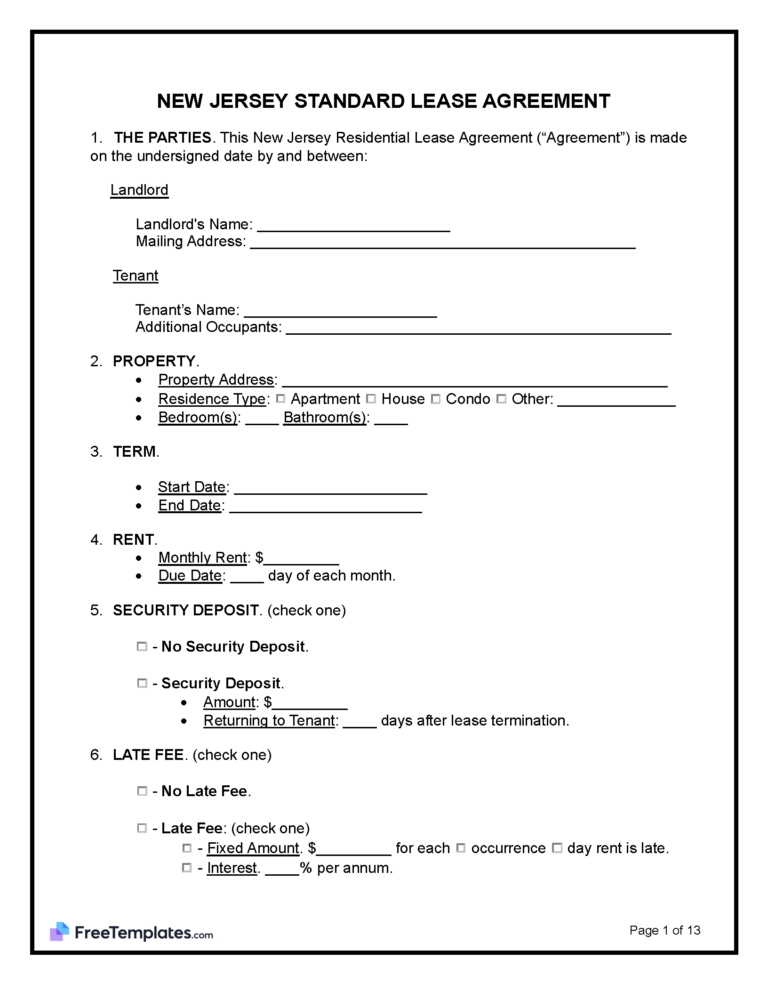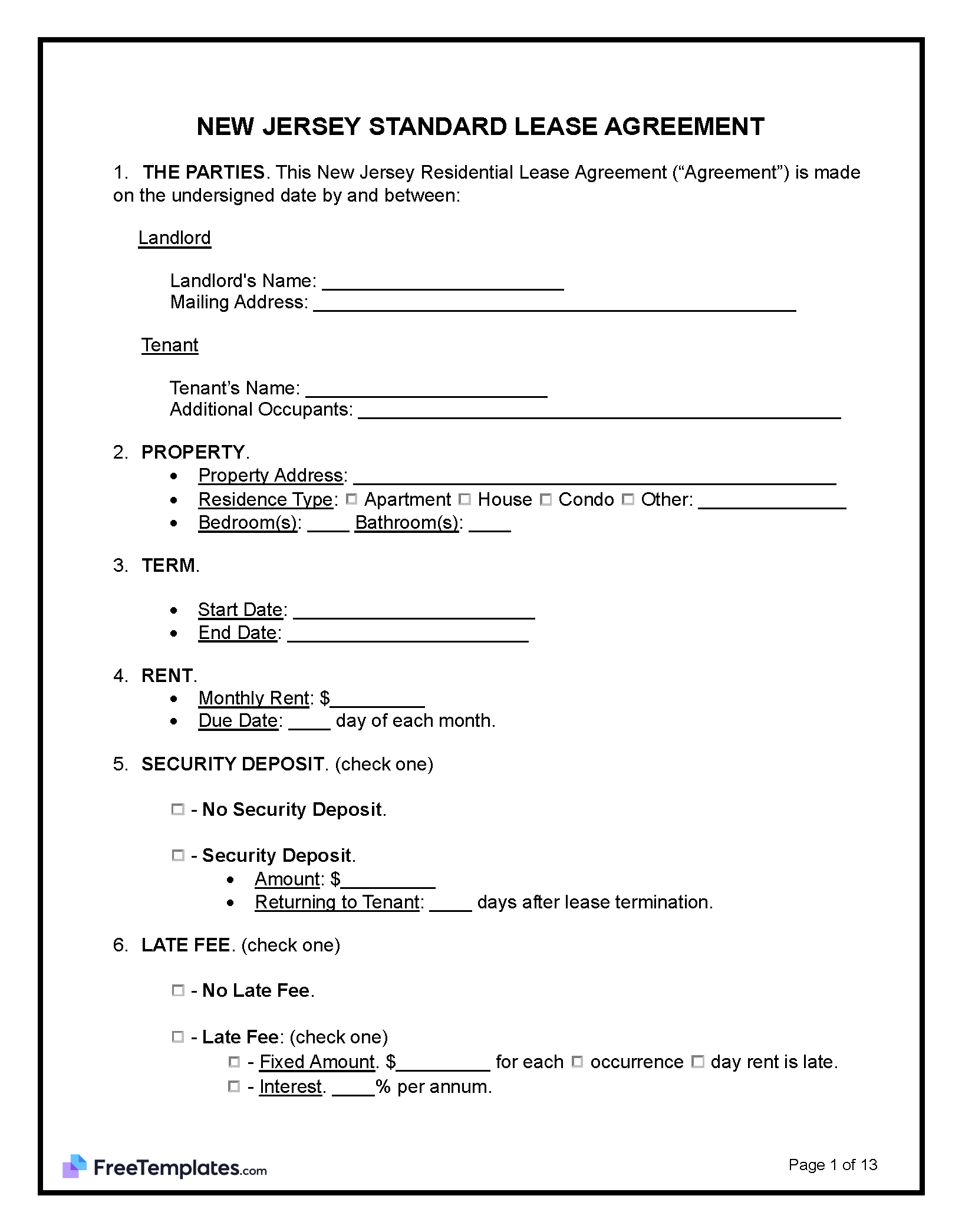Disclosures
Flood Zone (conditional) – It must be disclosed to any tenant if the property they are renting is situated in a flood zone. (§ 46:8-50(a))
Lead-Based Paint Disclosure – For any building constructed before 1978, the landlord must disclose a lead-paint pamphlet to their tenant due to the possible risk of harmful lead paint. (EPA/HUD Fact Sheet)
Truth in Renting Act – This disclosure covers the rights and responsibilities of both the tenant and landlord and must be provided if the rental property consists of two or more units. (§ 46:8-46)
Window Guard Disclosure – If a tenant has children under 11 years old and lives in a building with three or more units, the landlord must provide a window guard if the tenant requests one. (§ 5:10-27.1(c))
Rent Grace Period
Security Deposit
Maximum Amount – One and one halfs month’s rent is the maximum a landlord may charge a tenant and may charge an additional 10% each year. (§ 46:8-21.2)
Returning – The landlord must return the security deposit and any interest within 30 days of the lease end date.
- Deductions – The landlord must provide the tenant with a list of deductions if the security deposit has been deducted. (§ 46:8-21.1)

